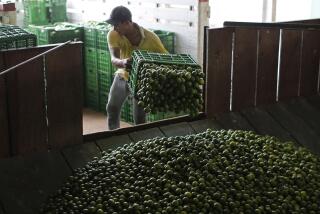Many Bolivian Public, Church Figures Interned in Jungle Camps
LA PAZ, Bolivia â Most of the 162 political, labor and church leaders jailed in a clampdown Thursday when President Victor Paz Estenssoro imposed a state of siege were sent to internment camps in Boliviaâs jungle flatlands Friday.
An Interior Ministry spokesman said that two airplanes left in the afternoon for San Joaquin and Puerto Rico, towns in the Beni region northeast of La Paz.
The Bolivian Bishopsâ Council of the Roman Catholic Church accused Paz of creating âa climate of tension and social fearâ with the state of siege.
Leaders of the Bolivian Workers Central who escaped arrest Thursday called on public and private sector workers to walk off their jobs Friday to protest the crackdown.
Workers not already on strike in government-owned mines heeded the call and some factories also were closed, but banks, offices, shops and domestic airlines and trains all continued operating.
âJust Aspirationsâ
Walter Delgadillo, secretary general of the Workers Central, issued the strike call from hiding and condemned the recent firing of about 7,000 workers from money-losing state-owned tin mines. Delgadillo also condemned the state of siege and what he called government use of terror to control âthe just aspirations of the working class.â
Pazâs government imposed the state of siege to smash what the decree called âa violent plan of insurrectionâ by striking tin miners and others.
âThe government is pleased that order has been established in Bolivia without any incidents of violence,â Information Minister Herman Antelo said Friday.
There were no outward signs in Laz Paz of the state of siege. Troops that initially cordoned off the campus of the state university and Workers Central headquarters were back in their barracks Friday.
About 5,000 miners and their families were halted by government troops Thursday from completing a march on the capital to protest government steps to cure an ailing economy, measures that included the mine layoffs. By Friday, most of the marchers were returning to their homes in Oruro province, a mining center 150 miles from La Paz.
Closure of Mines
The Ministry of Mines announced Monday that seven of its 24 mines would be closed and that nine others would be sold to minersâ cooperatives.
Mineral exports earned Bolivia about $300 million last year, compared with about $600 million from illicit cocaine exports. Cocaine production has been disrupted recently by a joint Bolivian-U.S. campaign to wipe out laboratories where the coca leaf is processed.
The minesâ output is mainly tin. They also produce some antimonium, zinc, lead, silver and gold. Most of Boliviaâs total mineral output comes from the state-owned mines. Comibol, the state mining company, lost $230 million last year when world tin prices fell from about $5.60 a pound to about $2.40.
Mining Minister Jaime Villalobos said that some mines had to be closed because the ongoing deficit was fueling inflation, recently running at low double-digit levels after peaking in mid-1985 at more than 20,000%, calculated annually.
âTens of Other Thousandsâ
The mine workers union, however, said the closures âwill affect tens of other thousands of people whose livelihoods are connected to the mines and mining cities.â
An Interior Ministry spokesman said that police have a list of labor leaders and others still being sought for arrest Friday.
More to Read
Sign up for Essential California
The most important California stories and recommendations in your inbox every morning.
You may occasionally receive promotional content from the Los Angeles Times.










